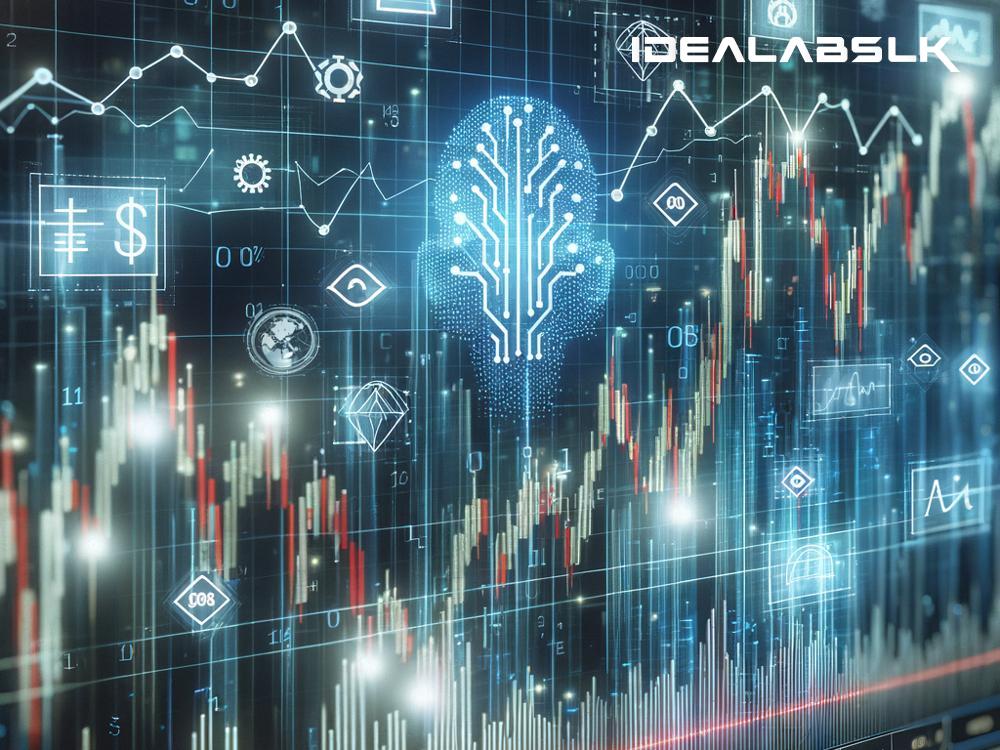Title: Navigating the Future: How AI is Revolutionizing the Stock Market
In the ever-evolving landscape of the stock market, Artificial Intelligence (AI) is ushering in a new era of trading, transforming how trades are executed, decisions are made, and strategies are developed. This wave of advancement is not just changing the game for traders and investors; it's essentially reshaping the stock market's fabric, making it more accessible, efficient, and, surprisingly, more human. Here's a simple breakdown of how AI-powered systems are disrupting the stock market and what this means for the average person.
The Magic Behind AI in Trading
AI in trading refers to the use of computer algorithms and machine learning to analyze vast amounts of data, make predictions, and execute trades at speeds and volumes no human could ever achieve. These AI systems can sift through historical data, financial news, company earnings reports, and even social media to spot trends and patterns that could indicate the future movement of stock prices.
What makes AI so revolutionary is its ability to learn and improve over time. Unlike traditional trading strategies that might become outdated, AI algorithms constantly evolve, adapting to new data and market conditions. This means they can potentially get better at forecasting market movements and making more profitable trades as they 'learn'.
Efficiency and Speed
AI-enhanced trading systems are unmatched in their efficiency and speed. They can analyze millions of data points across hundreds of markets in a fraction of a second. This capability not only increases the chances of spotting profitable trading opportunities but also enables the execution of trades at optimal prices before market conditions change. For the average investor, this could mean better returns and a more dynamic market.
Reducing Human Error
One of the perennial challenges in trading is the susceptibility to human error. Emotions like fear and greed can often lead to poor decision-making, resulting in losses. AI systems, devoid of emotion, can make objective decisions based solely on data analysis. This does not just reduce the likelihood of error but also brings a level of rationality and predictability to the market, benefiting everyone involved.
Customization and Accessibility
AI is democratizing the stock market by offering personalized trading advice and strategies to individual investors, not just institutional players. Through robo-advisors and AI-driven investment apps, everyday investors can receive customized investment recommendations tailored to their financial goals, risk tolerance, and investment horizon. This level of customization was previously available only to the wealthiest investors with access to high-end financial advisors.
The Flip Side
While the benefits of AI in trading are substantial, there are concerns too. The primary worry is the risk of over-reliance on technology, which could lead to unforeseen systemic failures if these systems malfunction. Additionally, there's the fear that AI could exacerbate market volatility, as numerous AI systems reacting to the same data could lead to amplified market movements.
Despite these concerns, the trend is clear: AI is becoming an integral part of the trading landscape. Regulators, market participants, and technology providers are actively engaging in dialogues to ensure that as AI continues to play a bigger role, it does so in a way that maximizes benefits and minimizes risks.
Looking Ahead
The future of stock trading is undeniably intertwined with AI. As technology advances, we can expect AI systems to become more sophisticated, offering even more precise market predictions and smarter trading strategies. This not only holds the promise of potentially higher returns for investors but also implies a stock market that is more efficient, transparent, and accessible to everyone.
Importantly, the rise of AI in trading does not spell the end of human traders or financial advisors. Instead, it presents an opportunity for these professionals to leverage AI to enhance their work, combining the best of human intuition and emotional intelligence with the efficiency and analytical prowess of AI.
Conclusion
AI's integration into the trading world is disrupting traditional methods, setting a new standard for efficiency, accessibility, and rationality in the stock market. It's empowering both seasoned traders and novices alike with tools and insights that were once the domain of a select few. As we navigate this new era, it's essential to embrace the changes, understanding both the incredible potential and the challenges AI brings to the table. The journey of AI in trading is just beginning, and its full impact on the stock market is still unfolding. One thing is for sure: the future of trading looks brighter, smarter, and more inclusive than ever before.

